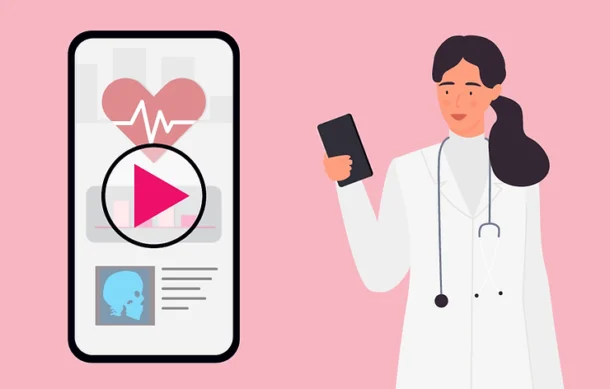The pharmaceutical industry has long lagged behind other sectors in delivering a five-star customer experience. With the pandemic acting as a catalyst for change, how can pharma transform its approach patients by introducing digital platforms and virtual care?
Words by Isabel O’Brien
Whether it is envy or idolism, Netflix and Amazon are highly revered by innovators in the pharmaceutical industry. The tech giants are like a pair of high-flying older siblings, leading a modish life in the city as pharma watches on longingly from the suburbs. The past year has only intensified the rivalry; the industry is now seeking to follow in these companies’ footsteps and establish its own reputation in the metropolis of customer experience.
“Digital platforms, such as Netflix and Amazon, dominate the entertainment market for a reason,” says Pamela Spence, Global Health Sciences and Wellness Industry Leader, EY, at the WIREDHealth virtual event. “They’ve improved the home media experience, making it efficient, convenient, and personal.” While healthcare and entertainment should lack direct comparisons, efficiency, convenience, and personalisation are universal consumer demands which have been largely neglected in healthcare until recent times.
Digital platforms, such as Netflix and Amazon, dominate the entertainment market for a reason
The pandemic has served as a wake-up call for the public who will be the key drivers of the healthcare delivery revolution. “Having had a taste of virtual care, the public will demand additional integrated services that provide a more personalised and convenient health experience,” asserts Spence. Pushing the boundaries of innovation will be crucial if we wish to recalibrate the standard of care. “Meeting these increased expectations will mean expanding the traditional definition of innovation, which historically has focussed on the safety and effectiveness of drugs,” she says.
Liz Ashall-Payne, CEO of healthcare app review platform, ORCHA and former NHS Speech and Language Therapist, explains that prescribing digital solutions will be key to replicating the efficiency we are observing in more advanced industries. “When digital health technology emerged, I realised we had a real opportunity. A clinician could deploy a digital health solution to many people all at the same time. Then they could all use it without being compromised.” Right now, disease management apps are having their moment. “Since COVID-19 arrived, there has been a 25% rise in health app downloads, up from 4 to 5 million every day,” she says. “There has also been a 6,500% increase in healthcare professionals recommending apps to patients.”
Spence argues that apps are only at the start of moving into a new generation. She predicts that monitoring platforms will also be more widely developed and adopted, resulting in the transformation of entire therapy areas. “In the future, all respiratory, cardiology, and renal patients will take two prescriptions from the clinician: one for the medicine, and the other for the platform that lets the patient and the clinician monitor how the patient is coping after they’ve been discharged, and to change the care plan when needed,” she says. These solutions will not only improve the experience, but they will also individualise care by allowing for real-time personalisation.
Chris Round, former Executive Vice President, Head of International Operations and Global Core Franchises, Merck, pushes even further while speaking at Reuters Events’ Customer Engagement Europe, unveiling his team’s hopes for the IVF space: “We’re looking to introduce a range of technologies that allow home monitoring and administration of IVF treatments. We would then integrate the data that’s collected in a way that helps clinicians, optimises patient care and the timing of interventions, and hopefully reduces the number of cycles that are necessary to go to live births.” These solutions not only allow for potentially better efficacy, but home administration delivers substantially on convenience.
The options are bountiful; however it is important for companies to identify a framework through which to explore and expand their investment into digital innovation. “Companies need to identify the business model that can best deliver them a competitive advantage in the future,” urges Spence. While Netflix and Amazon were built on these core values, digital advocates in pharma must demonstrate a high return on investment as well as influence on brand differentiation to overhaul the industry for the better.
Ashall-Payne reminds us of the importance of regulatory considerations; while technology has vast potential, safety and efficacy must remain front and centre. “Health apps provide the means to offer patient support plus capture data on medication adherence and patient engagement,” she says. “It sounds straightforward, but it isn’t, as there are regulatory pitfalls and large fines if codes are breached.” Platforms like ORCHA operate in this realm, enabling clinicians to unearth the apps that are most appropriate and credible.
Rightly framing the past year as a catalyst, Round remarks: “The misgivings about the potential of these technologies and digital applications are hopefully now being put to one side.” The pandemic has awakened healthcare consumers to the occasionally archaic and sluggish delivery of healthcare, and now pharma must shake up, learn from the example of their elders, and make a name for themselves as a customer-centric industry.







